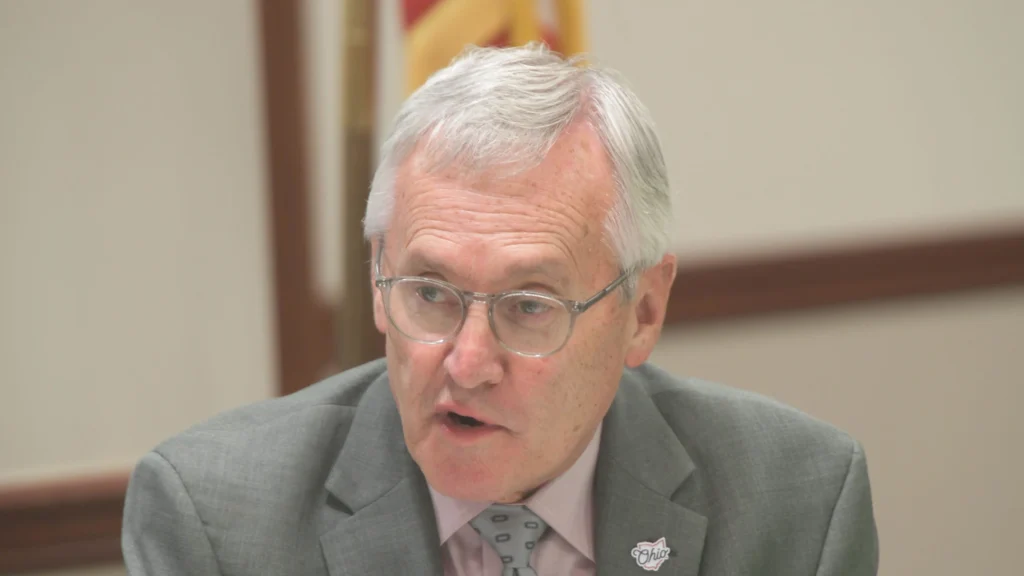
Jim Tressel Mulls Ohio Governor Run: An Analysis of a Potential Political Career
Jim Tressel, the iconic former head coach of the Ohio State University football team, is reportedly considering a run for the governorship of Ohio, a move that has captured the attention of many across the state and beyond. The news, while not fully confirmed, has sparked a range of discussions about the intersection of sports and politics, the legacy of Tressel’s tenure at Ohio State, and what his political platform might look like. For many, Tressel represents a unique blend of charisma, leadership, and a deep connection to Ohio’s culture, particularly in the realm of sports. However, his potential transition from a beloved sports figure to a political leader raises several questions and challenges, both for him personally and for Ohio voters.
In this article, we will explore the various dimensions of Tressel’s potential candidacy, examining his legacy as a football coach, his involvement in public service, his reputation within the state, and the broader political landscape. Furthermore, we will consider the role that Tressel’s sports background might play in his ability to connect with voters and build a political career, as well as the implications of his political aspirations for Ohio’s future.
Jim Tressel is perhaps best known for his highly successful career as the head coach of the Ohio State University football team from 2001 to 2010. Under Tressel’s leadership, Ohio State achieved remarkable success, winning a national championship in 2002 and appearing in numerous major bowl games. Tressel’s ability to build a competitive team, his focus on discipline, and his emphasis on integrity and academic success helped elevate Ohio State’s football program to national prominence.
However, Tressel’s tenure at Ohio State was not without controversy. In 2011, he resigned as head coach following a scandal involving several players who were found to have violated NCAA rules by trading memorabilia for tattoos. This incident was a significant blemish on Tressel’s career, but it did not completely overshadow his accomplishments as a coach. Tressel’s impact on the university and on the state of Ohio remained profound, and many people in the state continued to see him as a figure of trust and leadership.
After his resignation from Ohio State, Tressel’s career took a different turn. He accepted a position as the president of Youngstown State University in 2014, a role that allowed him to focus on education and community service. While serving as president, Tressel was instrumental in raising the profile of the university, improving its facilities, and fostering partnerships with local businesses. His background as a football coach, while still a major part of his identity, became a secondary consideration in his new role as an educator and public servant.
Tressel’s involvement in public service gave him an opportunity to build a different kind of relationship with Ohioans. He was able to show that he was more than just a sports figure; he was someone who cared about the state’s educational system and economic development. His work at Youngstown State was viewed by many as a positive contribution to the community, and it helped solidify his reputation as a leader who understood the needs of everyday Ohioans.
Now, with speculation swirling about his potential candidacy for governor, there are several compelling reasons why Jim Tressel might be well-suited for the role.
One of the biggest advantages that Tressel would have as a candidate for governor is his name recognition. As a former Ohio State coach, Tressel is a household name across the state. His success on the football field, along with his role in raising the profile of Ohio State as a university, has made him a beloved figure in Ohio. Tressel’s tenure at Ohio State was marked by success, and he is remembered fondly by many fans, students, and alumni.
Beyond his success as a football coach, Tressel is also associated with values such as integrity, discipline, and leadership. While the scandal involving the tattoo-for-memorabilia exchange may have tarnished his reputation to some degree, his broader image as a responsible leader remains intact. Voters may view him as a figure they can trust to govern with fairness and dedication, particularly in comparison to other politicians who may be less well-known or less respected in the state.
Tressel’s experience as a coach and later as president of Youngstown State University has provided him with a wealth of leadership experience that could translate well into the role of governor. As head coach of Ohio State, Tressel was responsible for leading a massive organization, making strategic decisions, and managing a diverse group of individuals, from players to assistant coaches to staff members. This experience required him to balance competing interests, deal with high-pressure situations, and maintain a sense of unity and direction for the team.
Similarly, his time at Youngstown State allowed him to work closely with local businesses, community leaders, and other public institutions. His ability to form partnerships and find common ground would be valuable in navigating the complexities of Ohio’s political landscape. As governor, Tressel would need to work with lawmakers, local officials, business leaders, and citizens to create policies that benefit the state as a whole. His leadership experience in both the sports and educational arenas would give him a strong foundation for this challenge.
Tressel’s focus on education and economic development during his time at Youngstown State would likely play a key role in his platform as a gubernatorial candidate. Ohio faces a number of challenges in terms of its education system, workforce development, and economic growth. Tressel’s background in education would make him well-positioned to advocate for policies that strengthen Ohio’s schools, universities, and vocational training programs.
In addition, his work with local businesses and economic development initiatives could inform his approach to job creation and economic growth. Tressel understands the importance of building a strong economy through investment in both human capital and infrastructure. His connections within the business community and his understanding of the state’s economic landscape would likely make him an advocate for policies that promote growth and opportunity.
One of the biggest challenges facing Ohio—and many other states—is political polarization. In recent years, the state has become more divided along partisan lines, with deep rifts between urban and rural areas, as well as between different political factions. Tressel, however, has the potential to serve as a unifying figure. His background in sports, where teamwork and collaboration are essential, positions him well to appeal to voters across the political spectrum.
Tressel’s appeal is not limited to one political party or demographic. His status as a former football coach allows him to connect with working-class voters, sports enthusiasts, and those who value a strong sense of community. At the same time, his work in higher education and his focus on public service may resonate with more progressive voters who prioritize social justice and economic equality. Tressel’s reputation for integrity and leadership could make him a candidate who transcends party lines, offering a message of unity and cooperation.
Although Tressel has significant experience in leadership, he has never held an elected office. His lack of political experience could be a disadvantage in a highly competitive race for governor. Running for office requires a deep understanding of policy, legislative processes, and the nuances of political negotiation. While Tressel has demonstrated leadership skills in other contexts, his ability to navigate the complex world of politics remains untested.
While many Ohioans continue to view Tressel as a respected leader, the NCAA scandal that led to his resignation as Ohio State’s head coach may still linger in the minds of some voters. The scandal, while not entirely of Tressel’s making, damaged his reputation and led to questions about his judgment. Opponents of Tressel could use this incident to question his ability to lead effectively and with integrity, even though he later demonstrated accountability by stepping down.
Finally, one of the more difficult transitions for Tressel would be moving from the world of sports to the world of politics. While his sports background may provide him with a level of credibility and connection to voters, it could also create challenges when it comes to understanding the nuances of public policy and governance. Tressel’s success as a coach does not automatically translate into success in politics, and he would need to prove that he can govern effectively and make decisions that benefit all Ohioans.
The possibility of Jim Tressel running for governor of Ohio has generated significant buzz, with supporters hopeful that his leadership, integrity, and deep connection to the state could make him a compelling candidate. His background in coaching and higher education provides a solid foundation for a political career, and his name recognition and reputation for trustworthiness would give him a significant advantage in the race.
However, Tressel would also face significant challenges, including his lack of political experience and the lingering effects of the NCAA scandal. Ultimately, whether or not Tressel decides to run for governor will depend on his ability to address these challenges and build a platform that resonates with Ohio voters. If he does decide to make the leap into politics, Tressel’s candidacy will undoubtedly be one of the most closely watched in the state’s history, as he seeks to transition from football legend to political leader.





